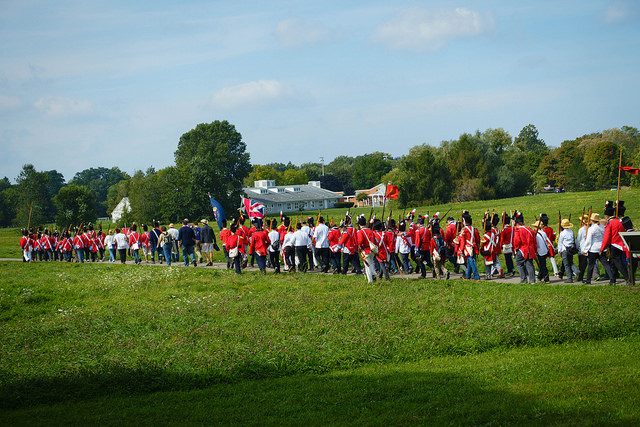
Here are a few data points on pay in the early 1800s.
When Congress voted for war with England in 1812, they increased the pay for a private in the army from $5 a month to $8.
Enlistment bonuses were set up at $31 cash plus 160 acres of land and later increased.
For context, the book says unskilled laborers might be able to make as much as $2.50 a week.
Summary in 1812:
- $ 5.00 / month – private in army, before raises
- $ 8.00 / month – private in army, after raises of 1812
- $10.00 / month – good pay for an unskilled laborer
As an amusing proof of King Solomon’s comment in Ecclesiastes that there is nothing new under the sun, the book mentions that Congress approved the bonuses and pay raises, did nothing to fund the increased spending, and then left town.
Above tidbits from page 117 of An Empire of Wealth: The Epic History of American Economic Power by John Steel Gordon.
I was able to quickly cross-check that data.
The National Archives quotes Donald R. Hickey in his book, The War of 1812: A Forgotten Conflict, as providing the following pay rates:
Start of 1812 war:
- $5 / month – privates
- $7 – $9 / month – NCOs
- $20 and up to $200 / month – officers
- $10 – $12 / month – unskilled labor
Raises to privates and NCOs of $4/month went into effect in late 1812.
Enlistment bonuses started at $31 cash and 160 acres of land. Bonuses were gradually increased to $124 cash and 320 acres of land.
That put the bonuses in the range of an amount equal to a year’s pay for unskilled labor for the cash and likely another year’s pay for the land.